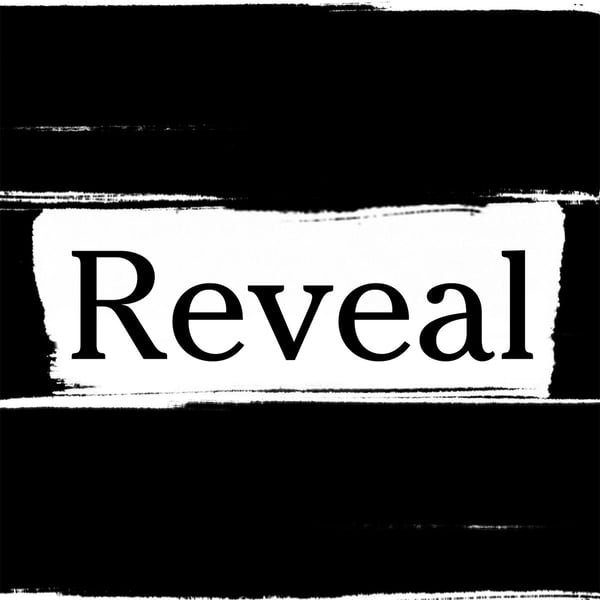Mississippi Goddam Chapter 7: Reasonable Doubt
Reveal
The Center for Investigative Reporting and PRX
4.7 • 8K Ratings
🗓️ 4 December 2021
⏱️ 56 minutes
🧾️ Download transcript
Summary
Donate now to support Reveal’s journalism.
•••
The final episode of Mississippi Goddam shares new revelations that cast doubt on the official story that Billey Joe Johnson accidentally killed himself.
This week marks the 13th anniversary of Johnson’s death. His family is still seeking justice. Our reporting brought up questions that the original investigation never looked into. Host Al Letson and reporter Jonathan Jones go back to Mississippi to interview the key people in the investigation, including Johnson’s ex-girlfriend – the first recorded interview she’s ever done with a media outlet. The team also shares its findings with lead investigator Joel Wallace and the medical examiner who looked into the case.
Finally, after three years of reporting, we share what we’ve learned with Johnson’s family and talk to them about the inadequacy of the investigation and reasons to reopen the case.
Transcript
Click on a timestamp to play from that location
| 0:00.0 | Hey, it's Alan. I hope 2022 has been a good year for you. But to be honest, it's been a tough one for us. |
| 0:08.0 | This year, Reveal was struck by a financial crisis that jeopardized our very existence. |
| 0:14.0 | But we've rallied, and all the while that was happening, our staff forged ahead to produce ambitious investigations |
| 0:22.0 | that exposed corruption and abuses that the powerful interests did not want revealed. |
| 0:27.0 | Because that's what we do. If we're going to keep telling these kind of stories though, we're going to need support from you. |
| 0:34.0 | To support fearless investigative nonprofit journalism, please donate by December 31st. |
| 0:41.0 | Just visit revealnews.org slash 2023. Again, to donate to the show and to support our work into the future. |
| 0:48.0 | Please visit revealnews.org slash 2023. And from the bottom of my heart, thank you. |
| 1:00.0 | From the Center for Investigative Reporting in PRX, this is reveal. I'm Al Etzin. |
| 1:06.0 | With me today, my colleague Alexis HiTower, and together, we're going to tell you a story that starts in 1944 in Tri-On, North Carolina. |
| 1:16.0 | 11-year-old Eunice Kathleen Weiman sits on a bench. She's so small, preparing to play the piano to the big audience watching in the town hall. |
| 1:29.0 | It's a big deal in a town like Tri-On that a classical piano prodigy lives among them, while not really among the white people, but still. |
| 1:39.0 | Her parents are the only black people allowed in the audience. They're sitting in the front row. Before she can touch the keys, she senses something wrong. |
| 1:50.0 | She looks out into the audience and sees a white couple trying to take her parents' seats. |
| 1:56.0 | This was the way of life in Tri-On, and little black girls should know their place, but not Eunice. |
| 2:04.0 | She turns to the crowd and says she won't play unless her parents can stay in their seats. |
| 2:10.0 | A noid, the white couple finds some seats in the back and Eunice sits at the bench and plays. |
| 2:17.0 | Someone comments, charming girl, but what nerve? They have no idea. |
| 2:28.0 | Three years later and several states over, Medgar Wally Evers and his brother Charles stand on the steps of the courthouse in Decatur, Mississippi. |
| 2:39.0 | They're staring down a group of 20 or so white men with rifles, shotguns, and pistols. |
| 2:46.0 | The mob is blocking their way to the voting booth and Medgar has known this feeling before, when the air crackles with the threat of violence. |
| 2:55.0 | He's been to war fighting against the Nazis in Europe, but he stands there, watching the white men blocking his way. |
... |
Please login to see the full transcript.
Disclaimer: The podcast and artwork embedded on this page are from The Center for Investigative Reporting and PRX, and are the property of its owner and not affiliated with or endorsed by Tapesearch.
Generated transcripts are the property of The Center for Investigative Reporting and PRX and are distributed freely under the Fair Use doctrine. Transcripts generated by Tapesearch are not guaranteed to be accurate.
Copyright © Tapesearch 2025.

